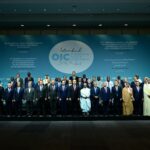Women Groups Demand Inclusive Dialogue Amidst Killings, in Benue State.
By Raymond Enoch
President Bola Ahmed Tinubu visit to Benue state have come and gone leaving behind conversations around deepening humanitarian crisis that followed the mass killings in Communities of Guma Local Government Area .
As a result, Women groups, civil society, and concerned citizens are raising grave concerns over what they describe as decades of exclusion, unaddressed injustice, and tokenistic leadership responses to the Benue killings.
In a statement issued by the Women Environmental Programme (WEP), on behalf of women, youth, and displaced communities across the state, the group demanded that Tinubu’s administration transcend protocol and photo-ops — calling instead for inclusive, grassroots engagement and urgent policy action on the spiraling conflict between herders and farmers.
“For more than 20 years, we have suffered in silence. Now, we demand to be heard,” said Dr. Priscilla Achakpa, Founder and Global Lead of WEP. “This is not just about conflict. It is about survival. It is about the future of our children, our land, and our country.”
Benue, once the food basket of the nation, now sits at the epicenter of Nigeria’s most entrenched internal conflict. Persistent clashes over land and resources — intensified by climate change, population explosion, and poor governance — have turned thriving communities into IDP camps, schools into rubble, and futures into ashes.
According to WEP, women and children bear the brunt, victimized by sexual and gender-based abuse
Stripped of livelihoods and access to education
Scarred by trauma, with no systems for healing
“Many of our young girls have never known peace,” Dr. Achakpa lamented. “What kind of leaders will they become if they grow up in war?”
The group linked the crisis not only to insecurity but also to the devastating ecological collapse across the region. Erratic rainfall, shrinking water bodies, and shrinking farmland have forced herders and farmers into deadly competition. Meanwhile, Nigeria’s rapidly growing population continues to pressure fragile land systems.
Smallholder women farmers, often the backbone of food production in Benue, face shrinking plots, failed crops, and no support — leaving entire communities food-insecure and economically strangled.
WEP and allied groups outlined urgent calls to action for President Tinubu:
Inclusion of IDPs, women, and youth in all consultations.
Access for civil society organizations with on-ground expertise in peacebuilding, aid, and legal support
Immediate passage of the Forest Bill to address environmental degradation and prevent future conflict
Emergency education interventions to reintegrate displaced children and avert a generational disaster
Long-term solutions including land reforms, trauma recovery, and gender-responsive peace policies
The Warning: “What Will Nigeria Look Like in 20 Years?” The group posed a chilling question:
“If tens of thousands of children grow up without education, hope, or healing — what will Nigeria look like in 20 years?”
They warned that without decisive intervention, Nigeria risks breeding a new generation of radicalized, impoverished, and displaced youth, accelerating a spiral of violence and instability.
Above all, WEP emphasized the leadership role of women and youth in building peace, rebuilding livelihoods, and healing divided communities. “We are not asking for charity,” said Dr. Achakpa. “We are asking for recognition — as partners, not as victims.”
As President Tinubu’s convoy rolls out of Benue, the message from the women of the state is clear: Listen to us. Include us. Act now. Anything less, they say, would be a betrayal of the very people who have endured the worst and hoped the longest.
“This visit must not be a performance,” Dr. Achakpa concluded. “Let it be a turning point.”








